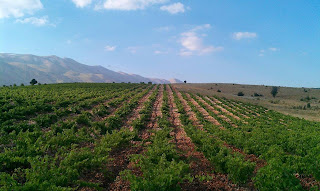
It is the Mulberry Season! A very brief season, begins around the end of June until mid July, with lots of mulberry trees in Lebanon; these fruits are at their best when you harvest them and eat them on the spot.

The benefits of mulberries are numerous...
"Mulberry is one of the nutrition treasures of alternative health medicine. Mulberry contains fiber, calcium, phosphorus, potassium, magnesium, carbohydrates, iron and proteins essential to one's good health. The fruit is found mainly in the subtropical regions of Asia, Africa and the Americas and can be black, red, pink or white in color.
Mulberry juice is believed to be a good source of treating anemia and poor blood circulation. The fruit is also a good source of nutrients that lower high blood pressure, reducing the risk of blood clots and strokes."
More on health benefits
here.
To give you some ideas, we will be posting recipes and serving suggestions about what you can do with the Fruit and its Syrup!
We have mulberries, so let's enjoy them ; )



 Deir El Ahmar is a Lebanese town, located at 100 km from Beirut and 12 km northeast of Baalbeck in the Bekaa Valley in Lebanon.
Deir El Ahmar is a Lebanese town, located at 100 km from Beirut and 12 km northeast of Baalbeck in the Bekaa Valley in Lebanon.


 "A blossoming almond tree" painting by Van Gogh
"A blossoming almond tree" painting by Van Gogh